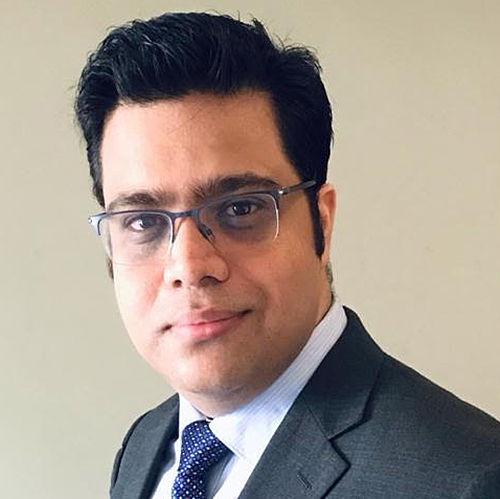 |
|
| Muller: Acquisitions and organic growth are appropriate directions for expansion |
In Asia, PGI lives somewhat in the shadow of Principal Insurance, its higher-profile sister company. But in recent years, PGI has been steadily building its own presence in this high growth market as part of a global expansion.
The firm is seeking out acquisitions around the world to fast-track the expansion of its capabilities as it aims to become a top global player in the asset management space.
The company uses a multi-boutique strategy to provide an expanded range of investment expertise through its network of specialized affiliates. This model involves separate investment teams, each with its own specialization, that complement each other under the PGI umbrella. It is different from traditional investment houses whose structures have consolidated investment teams and product suites.
PGI relies on boutique investment houses with their own P&L (profit and loss) and teams that are highly focussed on selected asset classes or strategies to service the requirements of its clients. “This multi-boutique model is a Western concept but I’m sure it’s going to be adopted in a different way in Asia. For example, as the Chinese fund management industry grows, they’ll find their own version of the multi-boutique structure and probably grow in that way,” says Andrea Muller, PGI chief executive officer for Asia.
She argues that the multi-boutique model is the appropriate direction for expanding the business, in addition to organic growth. She points out that such a structure is suitable for the Asian markets.
“If you look at the Asian asset management industry, institutional investors have been conservative. They’ve been home-biased, bond-biased and peer-biased as well. The industry is quite local so you’ve got small AUMs and it’s been tough to build more of a regional business. But that may change over time and you can become multi-boutique by acquiring different local expertise,” Muller says.
On the positive side, a multi-boutique model actually short-cuts organic growth which takes a longer time and requires more resources especially in a region like Asia where the asset management markets are fragmented. The negative flipside is that this model means PGI has to invest more capital in the business to acquire well-established and well-performing boutiques that can fit under its umbrella. But this is not a problem for PGI because it has at its disposal the extensive war chest of its parent, Principal Financial Group, to finance its acquisitions.
In July 2011, PGI announced the purchase of a 74% stake worth US$66 million in Origin Asset Management, a London-based equity specialist for institutional investors with US$2.7 billion in AUM. In April this year, PGI said it was buying a majority stake in London-based hedge fund Finisterre Capital for US$85 million as part of its acquisition programme.
The acquisition of Origin, which is also strong in emerging market equities, is intended to beef up PGI’s capability in this space while buying into Finisterre, a long-short boutique which focusses on emerging market local currency and G-3 debt, is seen to bolster PGI’s competency in the fixed income space in Asia- Pacific and other emerging markets.
“We’ve had an emerging market debt capability but it was US dollar-based and running out of Des Moines (Iowa in the US where the group’s headquarters is located) and London, but we needed to serve the local currency requirements of our clients. You can’t develop that overnight so acquiring a boutique like Finisterre was the perfect solution,” Muller explains.
Buying binge for expansion
Acquiring Origin and Finisterre are the latest moves that are part of a bigger and longer term programme to expand PGI’s asset management capabilities through a combination of organic growth and acquisitions.
Although its parent company has been around since 1879, PGI was established as a third party asset management unit only in 2001 when the Principal Financial Group was listed on the New York Stock Exchange. Despite its relative youth, PGI currently has US$235.3 billion of global AUM while the parent company has US$327.4 billion AUM as of March 2011.
In terms of assets, PGI’s total AUM consists of US$124.4 billion in fixed income, US$74.4 billion in equities and US$36.4 billion in real estate.
“In the last two years, we have restructured internally. Each of the internal boutiques operates as a separate team with separate P&L (profit and loss) and then there are shared services internally,” the PGI head notes, adding, “By using the multi-boutique strategy, PGI has expanded capabilities in both equities and fixed income. These boutique firms have expertise in core styles as well as niche offerings. Their combined capabilities help deliver tailored investment solutions on behalf of our clients.”
It now has 10 boutiques covering all forms of asset classes and strategies. PGI acquired its first boutique, Spectrum Asset Management, in 2001 with US$13.4 billion in AUM as of March 2011. Spectrum is a market leader in preferred securities, an asset class that is seeing increasing demand among retail and high net worth investors in Asia.
Other boutiques that are in its stable are the Post Advisory Group, which is a leading manager in high yield fixed income products with US$10 billion AUM; Columbus Circle Investors specializing in US equities with US$16.5 billion AUM; Edge Asset Management (formerly WM Advisors) a leading fundamental manager delivering equity and fixed income products with US$18.3 billion in AUM; Morley Financial Services, a value asset manager with US$14.5 billion AUM and the Macro Currency Group, a specialist managing currency mandates with US$4.2 billion AUM.
In Asia, PGI’s parent also has a joint venture with Malaysia’s CIMB Group known as CIMB Principal Asset Management, an asset manager for conventional funds in Malaysia with AUM of 29.60 billion ringgit as of December 31 2010.
PGI also has another joint venture boutique with the CIMB Group known as CIMB Principal Islamic Asset Management, a regional asset manager for Islamic funds with about US$1 billion in AUM.
“We (CIMB Principal Islamic) are in the process of setting up three Islamic funds on a Dublin (Ireland) platform that we will be able to market globally, particularly in the Middle East.
I think that will be the first time we’ll have a Malaysian asset manager on the Dublin platform,” Muller discloses.
In addition, the parent company owns a 20% stake in CCB Principal Asset Management Co., a joint venture with the China Construction Bank (CCB), the third largest commercial bank in China. Established in 2005 to service the domestic market, the joint venture leverages on CCB’s 14,250 branches for distribution and has US$8.4 billion AUM as of March 2011.
Muller oversees PGI’s businesses in six different locations in Asia including Singapore – where she is based – Hong Kong, China (Beijing and Shanghai), Malaysia and Dubai.
“We have two principal locations in Asia, Singapore and Hong Kong, but I am responsible for and have staff in six different locations. We have a rep office in Beijing. I have PGI staff in the joint venture with CCBI, there are also PGI staff members in CIMB Principal Islamic and we have just opened an office in Dubai that also falls under my remit. We have about 50 employees in six different locations,” Muller points out.
In Singapore, PGI has staff focussed on the investment, research, sales and trading, compliance and ground operations. In Hong Kong, PGI has sales and client service teams as well as investment professionals.
“In terms of capabilities that are Asian-based, we have portfolio managers based in Singapore and a team focussed on emerging market equities, Asia-Pacific equities and the Asian portion of global equities. In Hong Kong, we also have investment professionals focussed on Asia-Pacific equities but there are also portfolio managers who focus on China equities and that is a very highly rated strategy that’s performed very well as has our emerging markets. Those are the Asia-based equities strategies,” she says.
In addition, PGI also has a portfolio manager and a team covering global REITs (real estate investment trusts), Asian REITs and Australian REITs. The head of direct investments in Asian real estate is also based in Singapore.









